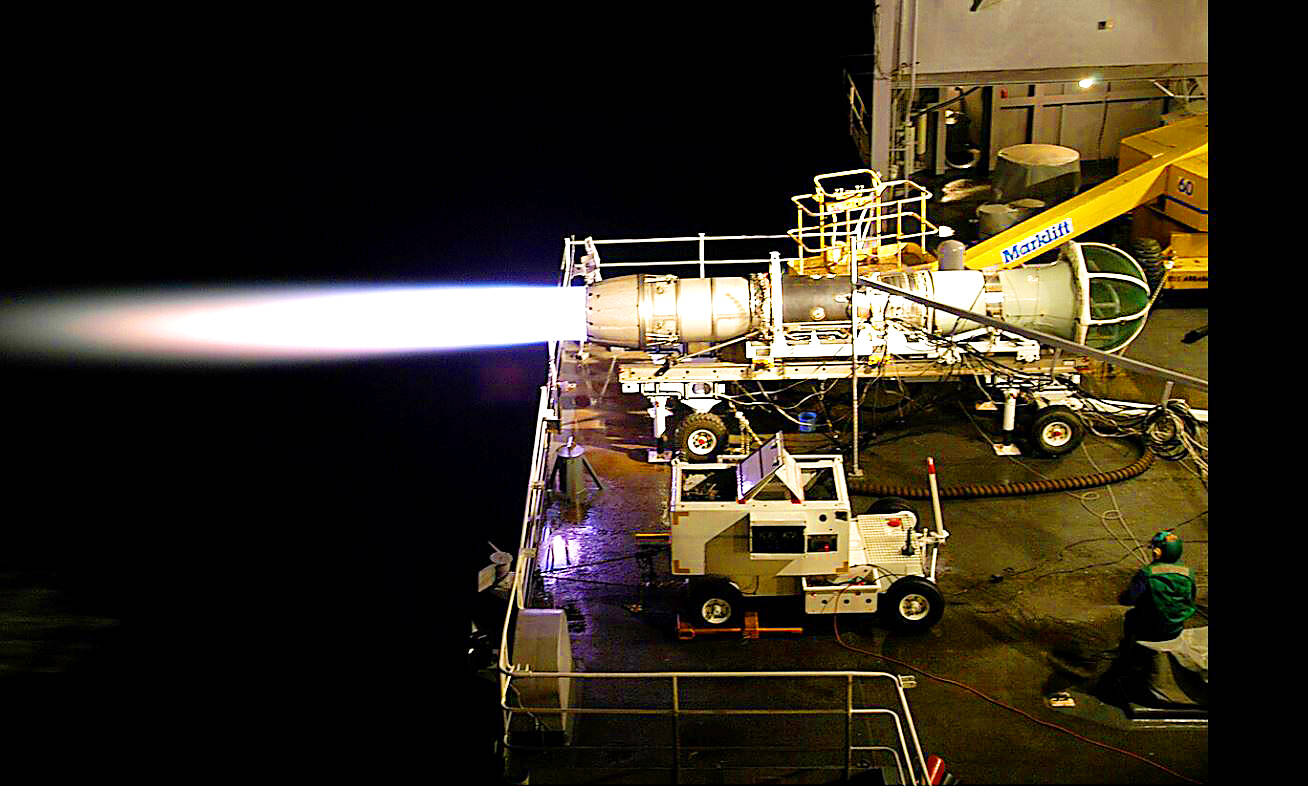The Ministry of National Defense is increasingly turning to General Electric (GE) F414 engines for the planned Advanced Defense Fighter (ADF) program as concerns mount over the nation’s ability to overcome technological bottlenecks, a defense official said on Saturday.
Taiwan’s ADF program intends to produce a fifth-generation tactical fighter using a low observability airframe, internal weapons bay, active electronically scanned array radar system, datalinks and an optional vectored thrust, among other advanced features.
The fighter jet would be a twin-engine design with a combined thrust of 22,000 pounds, an increase from the 18,500 pounds provided by the pair of Honeywell/ITEC F125 turbofans in the AIDC F-CK-1, the source said on condition of anonymity.

Screen grab from Wikipedia
The ministry pursued a double-pronged acquisition strategy for the engines by simultaneously funding the Chungshan Institute of Science and Technology classified Vega Project (織女星計畫) to develop the propulsion systems and soliciting international aerospace firms, they said.
Taking on the technological challenge of indigenously developing modern fighter jet engines was to ensure the nation would not be reliant on an outside source for a major weapon system’s key components, the source said.
The bet did not appear to be paying off as the institute encountered unspecified problems that might have to do with metallurgy techniques required for the high-pressure compressors used in powerful engines, they said.
The institute previously told lawmakers that it has achieved or acquired 12 crucial technologies to build medium-sized turbofan engines but not the large units called for by the ADF program.
However, the ministry would continue to push toward developing the technological know-how to manufacture jet engines while also looking for other solutions, including the General Electric F414, they said.
The US Navy’s F/A-18E/F Super Hornets are jets that use two F414 turbines, which generate 26,000 pounds of thrust altogether, the source said.
A a ministry spokesperson declined to comment on the AFD program, saying that next year’s military budget is still being designed with countering specific threats and operational priorities in mind.
No specific details about the budget can be provided until the Executive Yuan finalizes the ministry’s expenditure limit, they said.

Taiwan is stepping up plans to create self-sufficient supply chains for combat drones and increase foreign orders from the US to counter China’s numerical superiority, a defense official said on Saturday. Commenting on condition of anonymity, the official said the nation’s armed forces are in agreement with US Admiral Samuel Paparo’s assessment that Taiwan’s military must be prepared to turn the nation’s waters into a “hellscape” for the Chinese People’s Liberation Army (PLA). Paparo, the commander of the US Indo-Pacific Command, reiterated the concept during a Congressional hearing in Washington on Wednesday. He first coined the term in a security conference last

Prosecutors today declined to say who was questioned regarding alleged forgery on petitions to recall Democratic Progressive Party (DPP) legislators, after Chinese-language media earlier reported that members of the Chinese Nationalist Party (KMT) Youth League were brought in for questioning. The Ministry of Justice Investigation Bureau confirmed that two people had been questioned, but did not disclose any further information about the ongoing investigation. KMT Youth League members Lee Hsiao-liang (李孝亮) and Liu Szu-yin (劉思吟) — who are leading the effort to recall DPP caucus chief executive Rosalia Wu (吳思瑤) and Legislator Wu Pei-yi (吳沛憶) — both posted on Facebook saying: “I

The Ministry of Economic Affairs has fined Taobao NT$1.2 million (US$36,912) for advertisements that exceed its approved business scope, requiring the Chinese e-commerce platform to make corrections in the first half of this year or its license may be revoked. Lawmakers have called for stricter enforcement of Chinese e-commerce platforms and measures to prevent China from laundering its goods through Taiwan in response to US President Donald Trump’s heavy tariffs on China. The Legislative Yuan’s Finance Committee met today to discuss policies to prevent China from dumping goods in Taiwan, inviting government agencies to report. Democratic Progressive Party Legislator Kuo Kuo-wen (郭國文) said

Sung Chien-liang (宋建樑), who led efforts to recall Democratic Progressive Party (DPP) Legislator Lee Kun-cheng (李坤城), was released on bail of NT$80,000 today amid outcry over his decision to wear a Nazi armband to questioning the night before. Sung arrived at the New Taipei District Prosecutors’ Office for questioning in a recall petition forgery case last night wearing a red armband bearing a swastika, carrying a copy of Adolf Hitler’s Mein Kampf and giving a Nazi salute. Sung left the building at 1:15am without the armband and covering the book with his coat. Lee said today that this is a serious